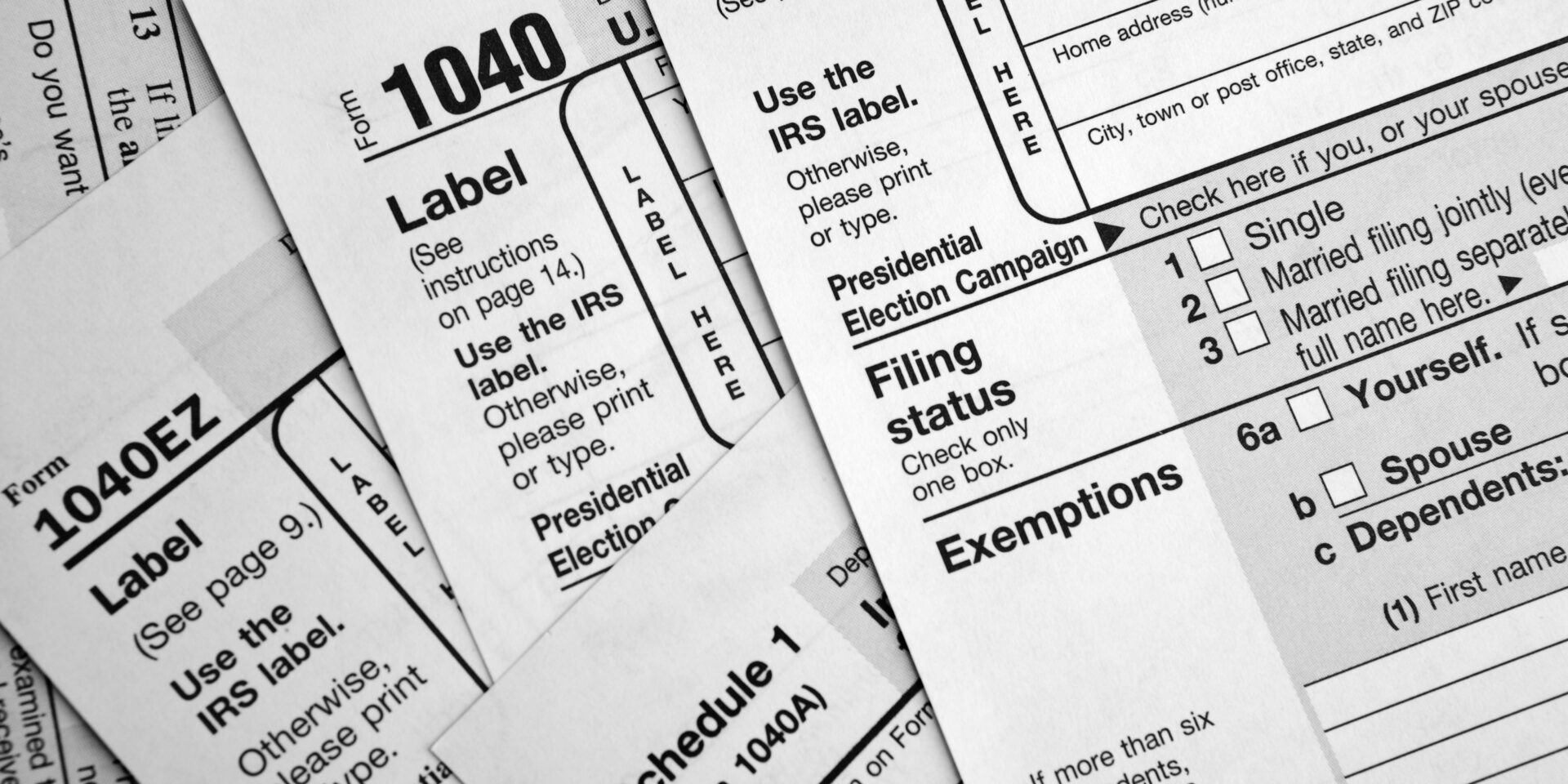Language:
How to Start a Baking Business

Baked goods bring joy and comfort for all occasions, and it’s no surprise that more and more people want to get in on the action of starting a baking business.
But what do you need to consider when starting a baking business?
Read on to learn how to plan a successful baking business and prepare for the technical side of running a legally compliant business.
Why Start a Baking Business
There are countless reasons why one would want to open a baking business. It’s fun, fulfilling, and delicious!
Here are some key benefits of starting a baking business:
- Creative Outlet: Baking allows for creativity and the ability to express oneself through unique flavor combinations, designs, and decorations.
- Flexibility: Baking can be done from home or a commercial kitchen and can be tailored to fit around other commitments such as family, school, or another job.
- Low Start-up Costs: Compared to other types of businesses, starting a baking business can be relatively inexpensive, with many basic baking supplies already available in most kitchens.
- High Demand: Baked goods are always in demand, whether it’s for everyday consumption or special occasions such as weddings, birthdays, and holidays.
- Repeat Business: Once customers taste and enjoy your baked goods, they are likely to return for more, creating a steady stream of repeat business.
- Personal Fulfillment: For those who enjoy baking, starting a baking business can be a fulfilling way to turn a hobby into a career and share their passion with others.
- Potential for Growth: A successful baking business can expand to include catering, wholesale, and e-commerce, providing opportunities for growth and increased revenue.
Things to Consider
While starting a baking business can be rewarding, there are also some potential disadvantages to consider.
Here are some things to consider when pursuing your baking business:
- High Competition: The baking industry can be very competitive, with many established and new businesses vying for customers.
- Physical Demands: Baking can be physically demanding, requiring long hours on your feet, working in hot environments, and lifting heavy bags of flour and sugar.
- Regulatory Requirements: Starting a baking business often requires obtaining permits, licenses, and certifications, which can be time-consuming and costly.
- Food Safety Concerns: Ensuring the safety and quality of baked goods can be challenging, as they are perishable and must be stored and transported correctly to avoid spoilage or contamination.
- Seasonal Fluctuations: Baked goods may have varying demand throughout the year, with busier periods during holidays and slower periods during other times.
- Business Management: Running a baking business requires business management skills, including accounting, marketing, and customer service.
- Financial Risks: Starting a baking business requires an initial investment in equipment, ingredients, and marketing, and it may take time to build a steady customer base and turn a profit.
Even though a baking business may have its ups and downs, are you ready to begin your baking journey?
How to Start a Baking Business in 8 Steps
Now you have a good idea of the pros and cons of starting a baking business, let’s go over the 8 essential steps for starting a baking business.
1. Research Your Market and Competitors
Before you do anything else, you’ll want to do your due diligence in researching the market and your baking competitors.
This can involve visiting bakeries in your local area, visiting farmers’ markets, and reading reviews of your competitors.
By doing thorough research on your competition, you can get a good sense of what you’re up against.
Are they successful and have a strong name for themselves? Or do they struggle with keeping their business afloat?
These indicators will give you the insight to know what to do and what not to do — making your business stand out from the rest as a unique brand that produces high-quality products.
2. Develop a Business Plan
Next, you will need to develop a concrete business plan. This will be your road map to conducting your daily operations and professionally documenting your commitment to your business.
Here are the fundamental factors of developing a business plan:
- Define the Scope of the Business: This involves determining what types of baked goods you will offer, what your target market is, and whether you will operate from a physical location or online.
- Create a Marketing Strategy: This involves developing a plan for how you will promote your business and attract customers, including branding, social media, advertising, and networking.
- Create a Pricing and Packaging Strategy: This involves determining how much you will charge for your products, what types of packaging you will use, and whether you will offer any discounts or promotions.
- Develop a Sales and Distribution Strategy: This involves deciding how you will sell and distribute your products, including whether you will sell directly to customers or through retailers and how you will handle delivery and shipping.
- Create a Financial Plan: This involves developing a budget, projecting your expenses and revenue, and determining how you will finance your business, whether through personal savings, loans, or investors.
- Create a Plan for Day-to-Day Operations: This involves developing a plan for how you will manage inventory, order supplies, and handle customer service and support, as well as any staffing needs you may have.
3. Choose Your Business Structure
Once you’ve written your business plan, you will need to choose a business structure. This is crucial because it will determine your legal obligations and how you file your taxes.
Below you will find the main types of business structures along with their pros and cons.
Sole Proprietorship
A sole proprietorship is a type of business entity that is run, owned, and operated by one person. This is the simplest form of business organization, and it is easy to set up and maintain.
Advantages:
- Easy to Set Up and Operate: There are few legal formalities and regulations required to establish and run a sole proprietorship.
- Full Control: The owner has complete control over all aspects of the business, including decision-making and operations.
- Tax Benefits: The business income is reported on the owner’s personal tax return, which allows for greater flexibility in managing tax liabilities.
- Flexibility: Sole proprietors can adjust their business model quickly to respond to changing market conditions or customer needs.
Disadvantages:
- Personal Liability: The owner is personally liable for all the debts and obligations of the business, which means personal assets may be at risk.
- Limited financial resources: Sole proprietors may have limited financial resources, which can make it difficult to invest in the business or weather financial downturns.
- Limited Growth Potential: Sole proprietors may find it difficult to expand their business or attract investment without taking on partners or changing the business structure.
- Limited Expertise: As a one-person operation, a sole proprietor may not have access to the same level of expertise or resources as a larger business.
General Partnership
A general partnership is a type of business entity where two or more individuals share ownership and management responsibilities of a business.
Advantages:
- Shared Responsibility: Partners share the workload, decision-making, and financial burden of the business.
- Access to More Resources: With multiple partners, there are more financial resources, expertise, and networking opportunities available.
- Tax Benefits: Like a sole proprietorship, the partnership’s income is reported on the partners’ personal tax returns, which allows for greater flexibility in managing tax liabilities.
- Flexibility: Partnerships can be structured to allow for flexibility in the distribution of profits and management responsibilities.
Disadvantages:
- Personal Liability: Partners are personally liable for all the debts and obligations of the business, which means personal assets may be at risk.
- Shared Profits: Profits are shared among partners, which can lead to disagreements about how to allocate resources.
- Limited Growth Potential: Like sole proprietorships, partnerships may find it difficult to attract investment or expand the business without changing the business structure.
- Joint Decision-Making: Partners must make joint decisions, which can lead to conflicts or disagreements.
Limited Partnership
A limited partnership is a type of business entity that consists of at least one general partner and one or more limited partners. The general partner is responsible for managing the business and has unlimited liability for the partnership’s debts and obligations, while the limited partners contribute capital but have limited liability.
Advantages:
- Limited Liability for Limited Partners: Limited partners are not personally liable for the partnership’s debts and obligations beyond the amount of their investment.
- Tax Benefits: Like general partnerships, limited partnerships are taxed as pass-through entities, which means profits and losses are reported on the partners’ personal tax returns.
- More Resources: Limited partnerships have access to more financial resources and expertise than sole proprietorships or general partnerships.
- Flexibility: Limited partnerships can be structured to allow for flexibility in the distribution of profits and management responsibilities.
Disadvantages:
- Personal Liability for General Partners: General partners are personally liable for all the debts and obligations of the business, which means personal assets may be at risk.
- Complexity: Limited partnerships are more complex and require more formal documentation than sole proprietorships or general partnerships.
- Limited Control for Limited Partners: Limited partners have limited control over the management of the business and may not have a say in decision-making.
- Limited Growth Potential: Like sole proprietorships and general partnerships, limited partnerships may find it difficult to attract investment or expand the business without changing the business structure.
Limited Liability Company
A Limited Liability Company (LLC) is a type of business entity that offers limited liability protection to its owners, who are called members. This means that members are not personally responsible for the company’s debts or liabilities.
Advantages:
- Limited Liability: Members are not personally liable for the company’s debts or liabilities.
- Tax Flexibility: LLCs can choose to be taxed as a pass-through entity, like a partnership, or as a corporation, which allows for more flexibility in managing tax liabilities.
- Management Flexibility: Members can choose to manage the company themselves or appoint a manager to do so.
- Easy to Form and Maintain: LLCs are relatively easy to form and maintain compared to other business entities.
Disadvantages:
- Self-Employment Tax: Members are subject to self-employment tax on their share of the LLC’s profits.
- Limited Lifespan: LLCs may have a limited lifespan depending on the laws of the state in which they are formed.
- Complexity: LLCs are more complex than sole proprietorships or partnerships and may require more formal documentation.
- Limited Access to Capital: LLCs may find it difficult to raise capital through the sale of stock or issuance of bonds.
Corporation
A corporation is a type of business entity that is owned by shareholders and run by a board of directors. As with an LLC, the shareholders are protected from the debts or obligations of the company by limited liability,
Advantages:
- Limited Liability: Shareholders are not personally liable for the company’s debts or liabilities.
- Access to Capital: Corporations can raise capital by issuing stock or bonds.
- Perpetual Existence: Corporations can exist in perpetuity, regardless of changes in ownership or management.
- Management Flexibility: Shareholders can elect a board of directors to manage the corporation on their behalf.
Disadvantages:
- Double Taxation: Corporations are subject to double taxation, meaning that profits are taxed at the corporate level and again at the individual level when distributed as dividends.
- Complexity: Corporations are more complex than other business entities and require more formal documentation and procedures.
- Cost: Corporations are generally more expensive to form and maintain than other business entities.
- Limited Control: Shareholders may have limited control over the management of the corporation and may not have a say in decision-making.
Whichever business structure you choose, make sure to do extensive research or consult a legal expert to determine which business structure best suits your needs.
4. Register Your Business and Obtain a License and Permits
Moving forward, this next step involves registering your business with the Internal Revenue Service (IRS) and to obtain any legal documents you need to legally run your business.
Below are key factors to consider:
Choose a Business Name
Select a unique business name that reflects your brand and is easy to remember. You’ll need to ensure that the name is not already in use in your state and that it complies with any naming regulations.
Register Your Business
Register your business with the appropriate state agency. This may involve filing paperwork, paying a fee, and providing information about your business, including its legal structure and ownership.
Obtain a Business License
Depending on your location and the type of business you plan to operate, you may need to obtain a business license. This may involve filing an application or providing documentation such as proof of insurance or a zoning permit.
Obtain Permits
Depending on the type of baked goods you plan to sell, you may need to obtain permits from local or state health departments. This may involve undergoing inspections, meeting food safety regulations, and obtaining certifications such as a ServSafe certification.
Obtain a Tax ID Number and Permit
You will need to obtain an Employer Identification Number (EIN) from the IRS and a sales tax permit from your state if you plan to sell baked goods directly to customers.
Research Other Requirements
Depending on your location and the type of business you plan to operate, there may be other requirements to consider, such as registering for workers’ compensation insurance or obtaining a business bank account.
By following these steps and complying with all necessary regulations, you can ensure that your baking business is legally registered and licensed to operate.
5. Secure Financing if Needed
One of the most important aspects of starting a successful business is to ensure a reliable source of funds.
This may involve taking out a business loan, applying for an SBA loan, or seeking out investors.
Each option has its own set of pros and cons, so it is important to do research and find the right fit for the business.
Business loans may require collateral and have strict repayment terms, while SBA loans may take longer to obtain but offer more favorable terms.
You can also seek out investors which can result in significant financial resources but may require you to give up some ownership and control of the business.
Carefully consider how you will fund your business so as not to fall into financial trouble in the future and to avoid any litigations.
6. Purchase Equipment and Supplies
Investing in reliable, durable supplies and equipment is key to ensuring consistent quality in your baked goods and reducing the risk of breakdowns or malfunctions.
This may include items such as ovens, mixers, pans, and other utensils.
Depending on your business plan, you may also need to purchase things like cake stands, display cases, decorating tools, and packaging materials.
Moreover, it would be beneficial to research suppliers and compare prices to find the best deals on high-quality equipment and supplies.
7. Establish and Promote Your Business Online
After you have all of your equipment and your business is set up, you need to focus on your marketing strategy to reach as many people as possible.
Here are fundamental ways to invest your time and energy in promoting your business.
- Create a Website: A website is a crucial tool for establishing your business online. It can serve as a hub for information about your business, your products, and your contact information. You can also use your website to sell your baked goods online or to provide delivery options.
- Set Up Social Media Accounts: Food and beverage are a visually enticing medium, so social media platforms like Pinterest, Instagram, and Twitter can help you reach a wider audience and promote your business. By sharing photos of your baked goods, interacting with customers, and offering promotions, you can build a following and generate interest in your business.
- Use Email Marketing: Email marketing is one of the most effective ways to stay in touch with customers and promote your business. You can collect email addresses from customers on your website — and send regular newsletters, promotions, and updates about your business.
- Utilize Search Engine Optimization (SEO): SEO is the practice of optimizing your website and online content to rank higher in search engine results. By using keywords, creating high-quality content (such as blogs), and ensuring your website is easy to navigate, you can improve your visibility online.
- Consider Paid Advertising: Paid advertising, such as Google Ads or Facebook Ads, can help you reach a larger audience and promote your business to specific demographics. Although it can be an expensive investment for small businesses, if it’s coupled with high-quality content, paid advertising has the potential to reach a large number of potential buyers.
If you are serious about making a mark in the digital field — you may want to invest in marketing professionals to assist you in things such as content strategy, design, and copywriting.
8. Ensure Quality Control
In the last step, you need to make sure that all the initial work you put in was not in vain. This is why having a strategy to uphold a high standard of quality is vital.
This high standard of quality can mean several things such as the quality of ingredients, equipment, or baking procedures.
What you want to make sure of is to consistently provide quality products and services to build customer trust and loyalty. Thereby establishing a standard that everyone can depend on when they need quality baked goods.
What You Need to Know Before Starting a Baking Business
Starting a bakery business can be a challenging but rewarding endeavor.
From researching the market and your competitors to quality control, there are many important steps you must take to make your business a success.
Another crucial aspect of running a successful business is managing your finances effectively. That’s where doola’s bookkeeping services come in. Our team of experienced bookkeepers can help you with all your accounting and financial needs.
Contact us today to learn more about how we can help your baking business thrive.
FAQs
How to start a baking business from home?
To start a baking business from home, you will need to research and comply with local laws and regulations, obtain the necessary licenses and permits, purchase equipment and supplies, and establish a strong online presence.
How much does it cost to start a baking business?
You can start a small baking business with a few thousand dollars or less.
What qualifications do I need to run my own bakery?
There are no qualifications you need to run your own bakery. However, being business savvy and having a background in culinary arts is beneficial.
Can I open a bakery without a degree?
Yes, you can open a bakery without a degree.
How big is the US bakery industry?
According to IBISWorld, the US bakery industry generates approximately $58 billion in revenue annually and employs over 789,000 people.
Keep reading
Start your dream business and keep it 100% compliant
Turn your dream idea into your dream business.















